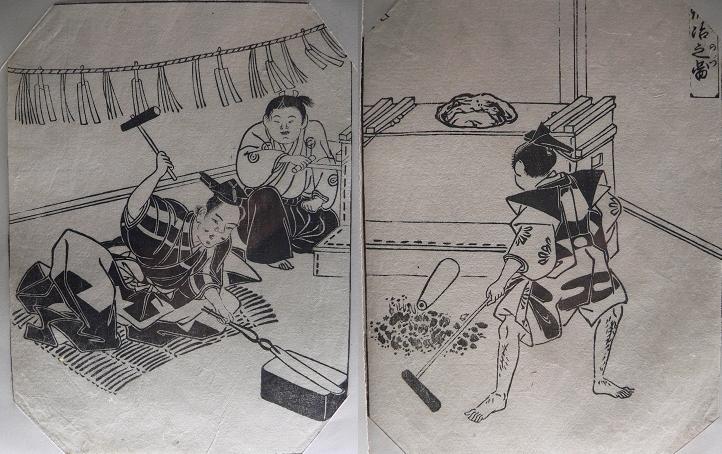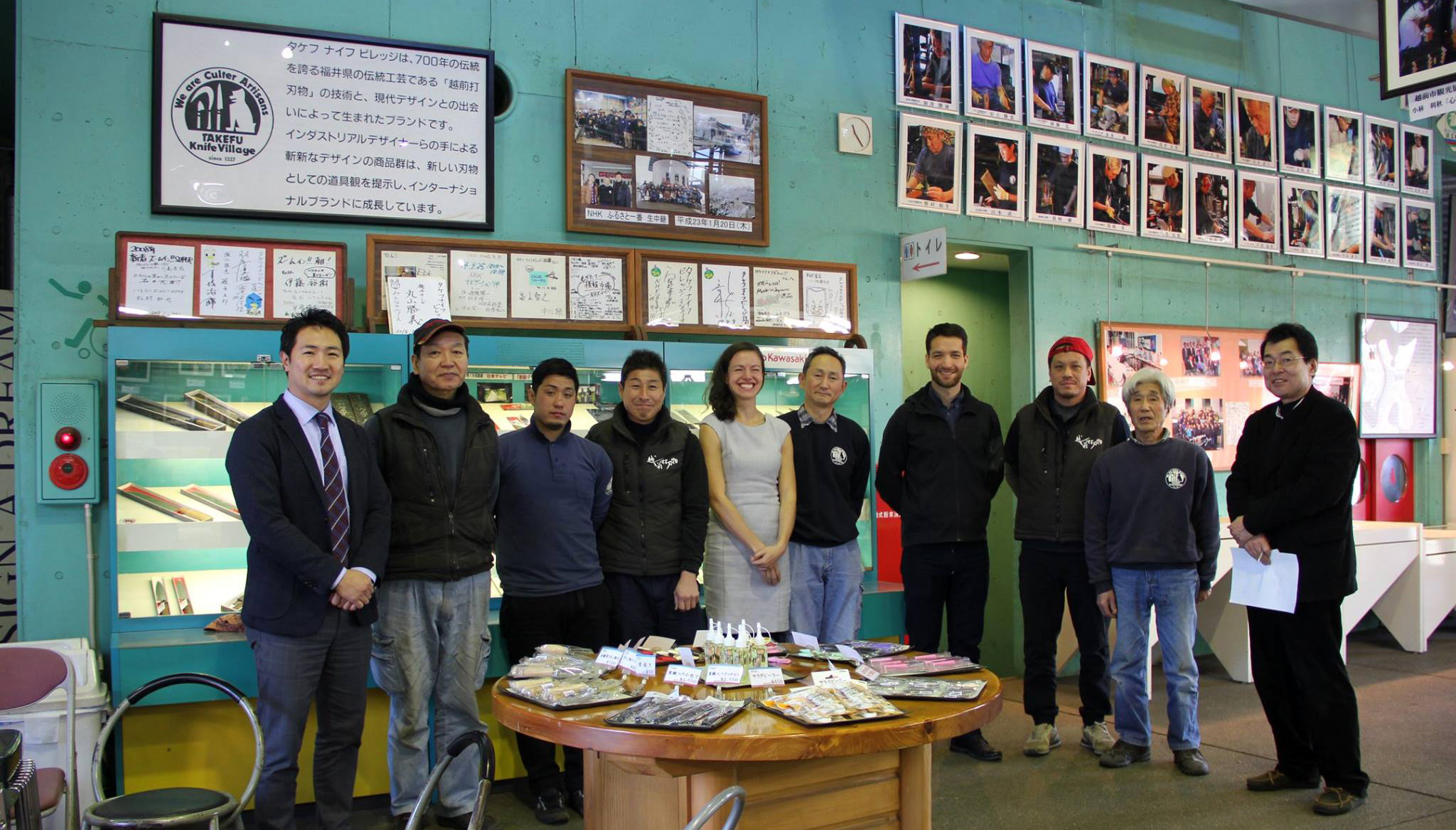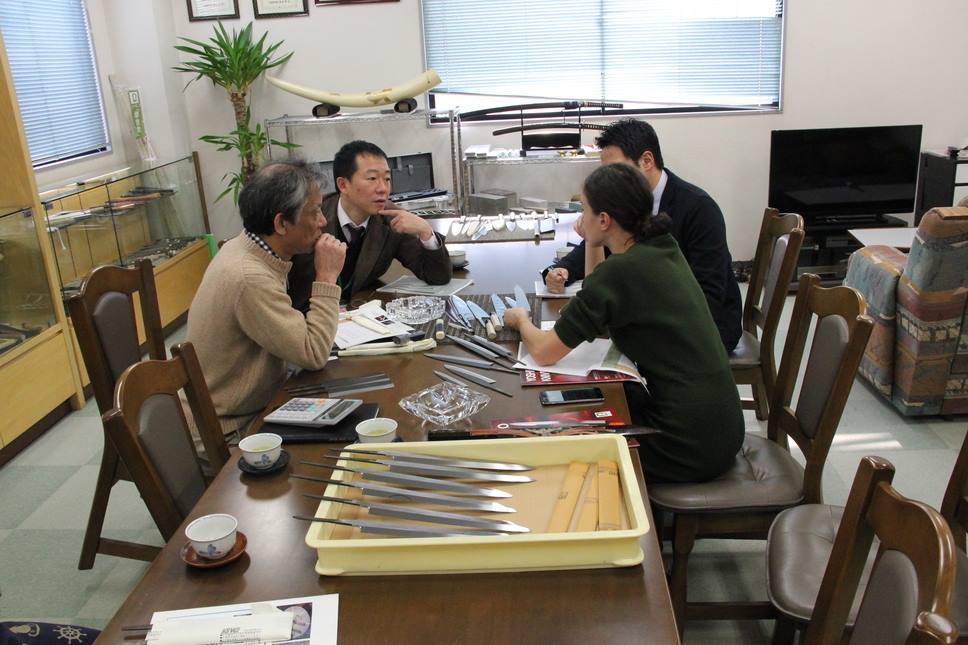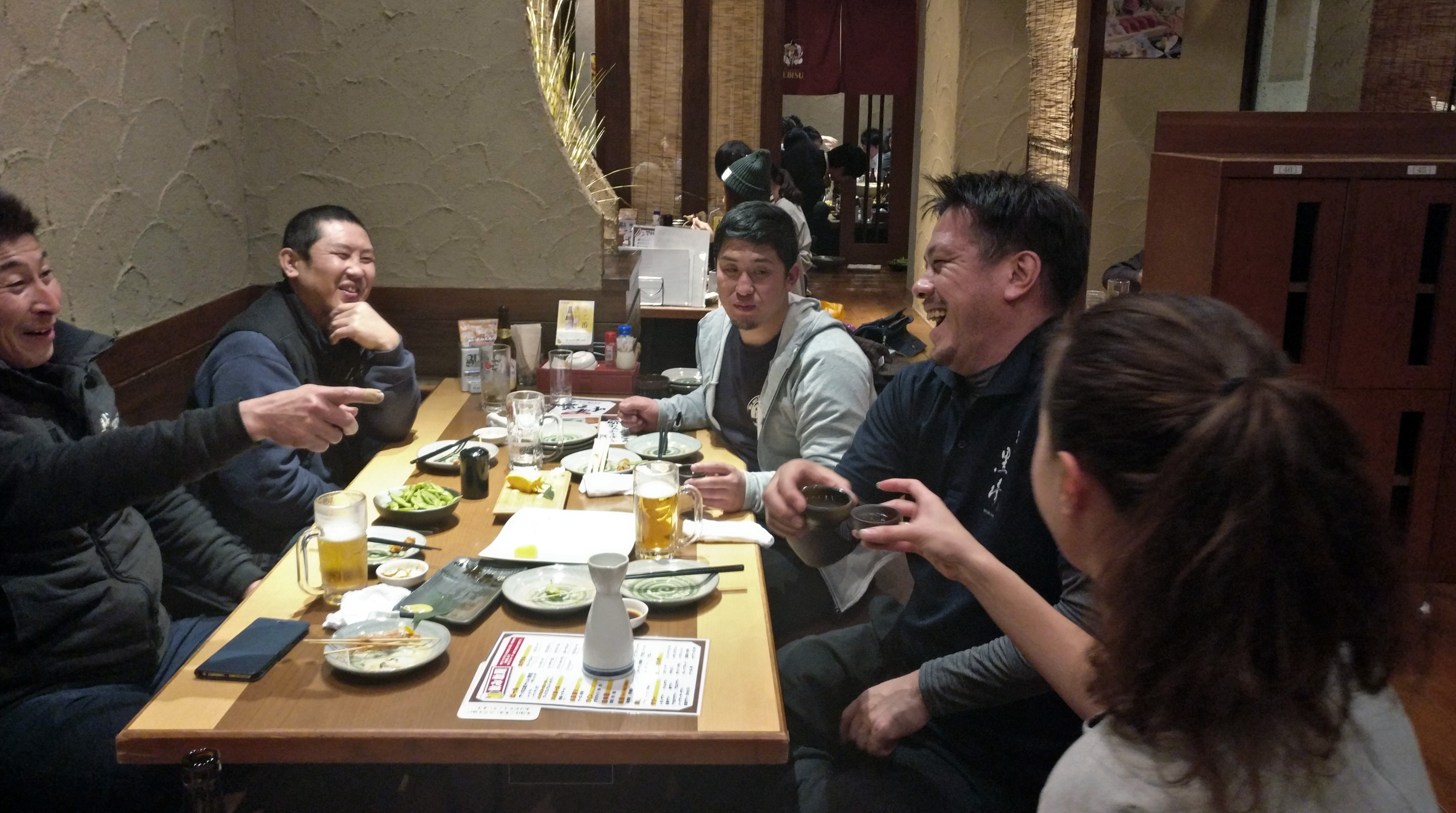On February 2016 I decided to start another company – this time, involving my kick-ass entrepreneurial friend Anna. Japana was born out of my new fascination with Damascus steel knives and the Japanese culture. Plus, I wanted to do something different, outside of the tech craze I’m operating in. Seeing huge demand for Japanese knives and big opportunities with importing Japanese products to Europe, we decided to open an eCommerce shop, focusing on handmade kitchen knives and sharpening tools.
However… if we knew what’s coming, even with my endless energy and optimism, I would think twice before incorporating and starting to trade with Japanese.

Since we were completely new to this field and with no connections in Japan, we started looking for our suppliers on the Internet. In the end, some of the most advanced tech (think Bitcoin and Blockchain) or hyperspeed railway system come from there. We dug all sorts of forums, translated Japanese sites with a rather funny Google Translate outcomes and out of around 40 emails, we got 5-6 responses from Japanese blacksmithing companies, from which we ended up to work with two. Many senior Japanese do not speak English, Japanese interpreters are almost a must. We hoped that Google Translate would do for starters, but we were wrong. Later we would find out that Japanese are really afraid to interact with non Japanese speaking people. Even the slightest mistake, syntax slip revealing that you are not from Japan can close you the chance of starting conversation.
One of the respondents to our email was a retail shop based in Japan, also pseudo-wholesaling to other businesses at ~30% discount of their retail price. We decided to take the chance. It wasn’t a big earn, almost nothing, really as we couldn’t sell above the price they were selling, plus, we needed to pay high UK custom charges.
But they had a long reputation in the industry and an impressive list of blacksmiths chose to sell to them. We needed to get in and start showing that we are a reliable and easy partner do deal with.
When starting to trade with Japanese, you must forget what you’ve learned in doing business with other countries.
Here, polite reminder means being pushy, enthusiasm – a threat, and being female young business owner – contradiction of everything which stands for perception of a reliable, serious business person.
The Japanese attitude toward foreigners, even educated people and high-ranking businesspeople, is clear: you are always an outsider. Your efforts to speak Japanese will be seldom taken seriously or with admiration – as it happens in other countries.
Oh, and apologise. Apologise for everything. Apologise for asking. Apologise for taking too much time. Hide your pride deep down, forget Western logic of doing business and start practising Buddhism and stoicism – detach yourself from emotions, accept the things as they are and hope to be given a chance.
Business decisions in Japan are made by consensus; therefore, no person will stick out as an individual.
Negotiating with Japanese is non-individualistic, impersonal and unemotional, but emotion is important – it is just under the surface. Logic and intellectual argument are not enough to sway the Japanese. They must like you and trust you, otherwise there will be no deal. Why is trust so important?
We, westerners are thought to think and act as individuals, but the Japanese represent their company, they BECOME them, which is part of their group, which in turn represents Japan. And they can not dishonour their homeland.
In business with Japanese, there is also no place for blunt, arrogant people. They will be quickly eliminated by being denied attention or not returned calls/emails. In my and Anna’s case, we have it even harder way, since Japanese blacksmithing is a very old-fashioned industry, where traditions of doing business are passed from generation to generation and not many blacksmiths have something so common (you would’ve thought) as an email address. Even if they do, they use it strictly for a personal use and work with a Japanese agent who handles all incoming online and offline business enquiries.
Even if you think you are following logical conduct of negotiations, you may be surprised that some of your actions can have a tragic effect on your business. One wrong move and you are out of business. They never forget. They seldom forgive.
We unconsciously fu**ed up most of our current and future relations by following up on the status of our order. We did it with all the politeness a British businessman musters up when she/he wants something badly. This was taken as a rude pushiness and started a snowball effect on all of future relations.
What did we do wrong?
Since our business with mentioned agency was doing good, we started allowing our customers to backorder products. Orders kept coming in, and we had some clients waiting for backordered products a couple of months (they were aware of processing time, Japanese knives are handmade and produced in extremely limited quantity). Then a miscommunication happened and that prevailed on our future. We already had an order placed with our partner, then one day, they emailed us that they would no longer be selling us wholesale certain series of knives. Unluckily, they were the knife series for most of our backorders. Not wanting to disappoint our customers and knowing that we’ve placed an order on those knives BEFORE we were informed about the changes, we hoped the company would honour our placed order on old terms. We were wrong. Our two emails explaining that our customers were waiting for these knives enough already did not reason with them. We hoped they would change their mind and fulfil this one, last order on old terms, and asked them to reconsider. For them, it was one email and one asking for the same thing too many. They thanked us for doing business with them and said that they would no longer be.
For them, we behaved arrogant. We believed that we were just taking care of our customers. We were just starting to build a brand and we wanted to deliver to our customers as we promised.
The thing is, you can’t reason with a Western mindset. Japan has modernised but not westernised, and true similarities are mainly only on technical level. Don’t assume that Japanese business people mean the same as you do when they use words like leadership, politeness or motivation. They have something quite different in mind. When dealing with Japanese, unlearn everything what you knew about business negotiations, be extremely polite and do not overtake process. I bet even a humble Jedi could drop the ball in these conditions.
The Japanese always apologise whether they were rude or not and they expect you to do the same. For instance, the Japanese apologise regularly for having had a cold, having taken you to see a poor film, or travelling with you in a late train (ok, that does NOT happen, all their Shinkansen trains run on time – really!). The safest tactic is to include I’m sorry, thank you every 2nd word of your sentence.
We are nice people, really.
That one email broke our chances to deal with the blacksmiths whose products we were ordering. This retail shop/agent made us a bad reputation and “advised” others not to work with us. And you must know that news gets spread really fast in a small, closed community such as among Japanese blacksmiths.
The thing was, we never had any bad intentions.
By then, we had only one major blacksmith to work with who was fortunately not related in any kind to that agent. That obviously wasn’t enough as he could supply only limited number per given time. We decided to look for a Japanese agent and fly to Japan to meet those blacksmiths in person and show that we are indeed nice and reliable people do to business with.
Alibaba helped.
Since Anna has a small child and couldn’t fly, I flew with Kuba. Later I would see that having a male partner in the meeting rooms would help immensely.
In December 2016 we flew to Osaka to meet with our agent and together, attend meetings scrupulously set up on an Excel sheet way in advance.

Since our bad reputation reached Japan, some of the blacksmiths didn’t even want to meet with us stating lack of time. Those who did, turned out to be a really kind and humble people. We thought we would be fine and it would take few weeks tops to start conversation about specific import actions.
Little that we know that Japanese, like many other Asians do not like to lose face. You won’t hear Japanese saying no directly to you, never in the meeting. It takes a great experience (and ideally, a Japanese heritage) to see when no means no and when no means maybe, but not now. They never say no, never refute entirely another’s argument and never break off negotiations as long as harmony prevails. This leaves them room for renegotiation some time in the future if circumstances change.
Fuck up no2
Still feeling ashamed every time I think of it, I managed to fall into a new trouble – I forgot to take business cards. If you ever saw movies of business cards exchange ritual in Japan – yes, it is real and yes, it is a protocol that you need to follow. Jinmyaku人脈 and Saabisu, as the business networking protocol in Japan is called, demands exchanging business cards by holding a card at two corners, keeping to bow interchangeably towards each other until another person stops (it is always the one with a higher seniority level).

Although my lack of business cards made some initial confusion, with a help of our agent we managed to return harmony to the meetings.
We walked out of them in a great atmosphere, we exchanged gifts (my business partner Anna sent me our best Polish vodka to London so I could take them with me as a gift). We dined with some blacksmiths, had a lot of lough and drunk a lot of sake during the meal. We were convinced that everything went great, they liked us and would consider doing business with us.




Tough luck. Later we would hear from our agent that this and that blacksmith does not want to do business with us.
Now we know the reason and do not take it personally. Building trust in traditional Japan is almost a life-time process. Their decisions are long-term, for example: Do we want these people as partners in the future? Do we trust them? Is this the right direction for the company to be heading? And big decisions take time.
They like people who are clean, well-dressed, not too hairy (ouh for Kuba :), not too young (ouh), modest, of quiet voice (ouh) and above all, polite. It gets much harder when you are a young woman and represent the opposite of what Japanese want to see as their perfect business partner.
You must also convince them that you are respectable. For a Japanese, respectability comprises a certain age (ouh), a proven record in business (tough luck if you’re just starting), an absence of any doubtful partners or deals and evidence of unquestioned solvency. Many Japanese business people will ask you openly at the first meeting for a list of your board of directors, the financial state of your company, your chief customers and a chairman’s report. They did this to us too.
The Japanese are conditioned by exceptional historical and geographical constraints as well as by their thought processes in a language very different from any other. Being a rather isolated island, Japan was relying on their own resources for a long time hence they did not develop a culture of market competition like we know from Western countries.
Blacksmithing industry in Japan is not such case. Due to its great history and limited number of suppliers, we found ourselves in a very difficult position, especially after the email fuckup.
Most of the blacksmiths we reached out already had an exclusivity agreement for certain markets with other e-retailers who came earlier to the market.
We could not just turn around and walk out to another blacksmith. It’s not a competitive market with unlimited supply of same service and/or products where you can pick and mix your suppliers.
We were at our blacksmiths’ mercy. And as if that was not enough, our competition from US and Canada played unfair game and had threatened blacksmiths who worked with them and were considering working with us too. They threatened to stop buying if the blacksmiths proceed on working with us (and the quantities these shops were taking were MUCH higher than what we could accommodate at that time).
The blacksmiths got scared and closed doors on us = we got screwed.
Japan is a woman: project Japana
That was not enough to beat us. We found new connections and expanded list of suppliers through cooperation with other sellers.
Knowing that some of our competition plays unfair and we can’t beat them in their own game, we decided to pivot a bit and innovate. We welcomed a new partner to our business – also Anna, who is an amazing interior and product designer. Together, we started creating a concept of Japana as a crafts business focused on kitchen and living room accessories and furniture.
As all the best family time happens in the kitchen during cooking, the core of Japana was, is and will be a traditional Japanese knife. We will be importing blades from Japan as we did. But in addition to that, we have started designing a line of kitchen knife handles, tools and lots of other incredible products – as a silent rebel act towards resistance we met. We want to marry tradition with innovation. And give it a female face.
Fun fact: Not many people know that there were great Samurai women out there in Japan and Korea. And yes, they were kicking ass.

Ps. If you are curious about our progress, sign up to Japana newsletter or fb page and show us your support 🙂





